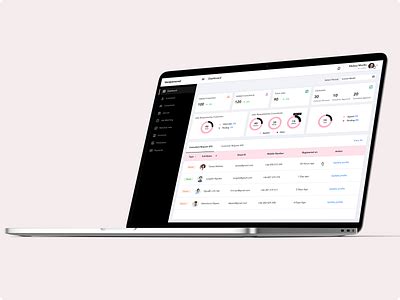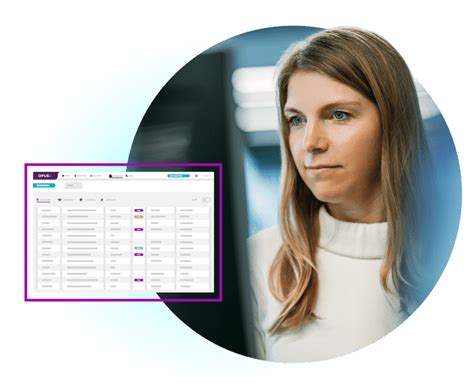In today’s fast-paced legal environment, staying organized and efficient is essential for law firms of all sizes. Legal software and case management tools have become indispensable resources, allowing attorneys to streamline their practices, manage documents, track deadlines, and improve client communication. From solo practitioners to large law firms, these technologies offer solutions tailored to specific needs, enhancing productivity and reducing manual tasks. This article explores the top legal software and case management tools available today, highlighting key features, benefits, and how they can transform the way legal professionals operate. Whether you’re a small firm or a large practice, leveraging the right tools can significantly boost your firm’s performance.
Discover the intricacies of this topic with alijyun.com
1. Introduction to Legal Software and Case Management Tools
Legal software and case management tools are designed to simplify the complexities of managing law practices, enabling attorneys and staff to focus on providing better services to clients. These tools help automate various administrative and operational tasks, such as scheduling, document management, billing, and case tracking, ultimately leading to a more efficient workflow. By reducing time spent on repetitive tasks, legal professionals can allocate more resources to case strategy and client engagement.
In addition, these platforms often integrate with other essential legal tools, such as e-discovery, legal research databases, and communication systems, ensuring a seamless work experience. Whether you’re a solo attorney or part of a large firm, legal software solutions provide a centralized platform for handling case-related data, improving accuracy, and minimizing errors. With options ranging from cloud-based solutions to on-premises systems, legal professionals can find tools suited to their specific needs and security preferences. Embracing these technologies is essential for any firm looking to stay competitive and organized in today’s legal landscape.

2. Benefits of Using Legal Software for Law Practices
Legal software offers numerous benefits that can significantly enhance the efficiency of law practices. One of the key advantages is time savings, as automation of routine tasks like document management, billing, and scheduling allows attorneys to focus more on casework and client interaction. By centralizing case information, legal software improves organization, making it easier to track deadlines, access client details, and manage case files.
Another major benefit is the reduction of human errors. With automated systems handling calculations, calendar management, and document generation, the risk of mistakes is minimized. Legal software also enhances collaboration within teams by providing real-time access to shared case data and communication tools, facilitating better coordination among colleagues.
Additionally, these tools improve client communication through portals that allow clients to view case progress, make payments, and interact with their attorneys securely. Ultimately, legal software increases overall productivity, reduces administrative burden, and leads to better client satisfaction, making it essential for modern law practices.

3. Key Features to Look for in Legal Software
When selecting legal software, it’s crucial to consider features that will directly enhance your practice’s efficiency and organization. One essential feature is document management, which allows for easy storage, retrieval, and editing of case-related documents. The ability to track document history and collaborate on files in real-time is also invaluable for legal teams.
Another key feature is case management, which includes tools for tracking case progress, managing deadlines, and storing client information in a centralized system. Effective case management ensures that no critical tasks are missed and that all team members stay informed.
Billing and time tracking are also vital features, enabling lawyers to track billable hours accurately and generate invoices seamlessly. Automated billing systems can simplify payment processes and ensure prompt client billing.
Cloud-based accessibility is becoming increasingly important, as it allows lawyers to access case files and legal tools from anywhere, enhancing flexibility, especially for remote or mobile work.
Additionally, strong security measures should be a top priority. Legal software should provide encryption, secure access controls, and data backup solutions to ensure that sensitive client information is protected.
Finally, integration capabilities with other tools, such as legal research databases and email systems, streamline workflows and minimize the need for switching between platforms, ultimately boosting productivity and maintaining an organized, efficient law practice.

4. Top Legal Software Solutions for Small to Medium Law Firms
Small to medium-sized law firms often need affordable and scalable legal software solutions that provide essential features without overwhelming complexity. Clio is a popular choice, offering a user-friendly interface with tools for case management, billing, and document storage. Its cloud-based platform allows attorneys to access case files from anywhere, making it ideal for firms with remote work needs.
Another excellent option is MyCase, which focuses on streamlining case management and client communication. It integrates billing, invoicing, and time tracking, making it easy for smaller firms to manage their administrative tasks without needing separate software.
For firms seeking more specialized features, Rocket Matter offers robust time-tracking, billing, and document management solutions, with an emphasis on productivity. Its integration with popular tools like Google Workspace and Microsoft 365 makes it a versatile choice for growing firms.
CosmoLex is another strong contender, particularly for firms looking for an all-in-one solution that includes accounting, billing, and case management. It provides built-in compliance tools, which can help smaller firms stay organized and meet industry standards.
These platforms are designed to enhance efficiency, reduce administrative burdens, and ensure small to medium firms can focus more on serving their clients.
5. Best Case Management Tools for Large Law Firms
Large law firms have complex needs, requiring advanced case management tools to handle vast amounts of data, large teams, and intricate workflows. iManage is a top choice for large firms, known for its comprehensive document and email management capabilities. It offers powerful search functionality, allowing firms to quickly locate case files and documents. With robust security features, iManage ensures that sensitive client information is protected, which is critical for large-scale operations.
Another excellent option for large law firms is PracticePanther. This platform excels in automating administrative tasks like billing, invoicing, and time tracking while offering strong collaboration tools for large teams. Its intuitive design helps firms stay organized, even when handling a high volume of cases.
For firms with a global presence, Litify is an ideal solution. Built on Salesforce, Litify provides customizability and scalability, allowing firms to tailor workflows and case management processes to meet their specific needs. Its comprehensive dashboard gives a real-time view of cases, performance metrics, and client interactions.
NetDocuments is another tool widely used by large law firms, particularly for its document management and collaboration features. Its cloud-based system allows teams to access case information globally while maintaining high security and compliance standards. These case management tools are essential for large firms aiming to optimize operations, enhance collaboration, and improve overall efficiency.
6. Comparing Cloud-Based vs. On-Premises Legal Software
When choosing between cloud-based and on-premises legal software, it’s important to weigh the advantages of each. Cloud-based solutions, such as Clio and MyCase, offer accessibility from any location, making them ideal for firms with remote or distributed teams. They also typically include automatic updates and maintenance, reducing the IT burden on the firm. Additionally, cloud solutions often provide scalable storage options and robust security measures managed by the provider.
On the other hand, on-premises software, like iManage, is installed and maintained within the firm’s own infrastructure. This can offer greater control over data and customization, which may be important for firms with specific security requirements or complex workflows. However, on-premises solutions generally require a larger initial investment in hardware and IT support and lack the flexibility of remote access.
Ultimately, the choice between cloud-based and on-premises software depends on a firm’s specific needs, budget, and preference for data control versus convenience and scalability.
7. Integrations and Compatibility with Other Legal Tools
Integrations and compatibility with other legal tools are crucial factors in selecting legal software, as they ensure seamless workflows and enhanced productivity. Top legal software solutions, like Clio and PracticePanther, offer integrations with various essential tools, including email systems, document management platforms, and calendar applications. This compatibility allows for smooth data transfer and synchronization across different systems, minimizing the need for manual data entry and reducing the risk of errors.
Integration with e-discovery tools, legal research databases, and client communication platforms can significantly improve a firm’s efficiency. For example, integrating with document automation tools can streamline the creation of legal documents, while compatibility with client portals enhances client communication and engagement.
Furthermore, many legal software solutions provide APIs or third-party app marketplaces, allowing firms to customize their tech stack according to their specific needs. Ensuring that your chosen software integrates well with existing tools and systems will help maintain a cohesive, efficient workflow and support overall operational effectiveness in your practice.
8. User Reviews and Testimonials of Leading Legal Software
User reviews and testimonials provide valuable insights into the effectiveness of legal software and its impact on law practices. Clio, for example, is frequently praised for its intuitive user interface and comprehensive features, making it a popular choice among small to medium-sized firms. Users appreciate its cloud-based accessibility and the ease with which it integrates with other tools, although some note that its pricing can be a bit high for smaller firms.
MyCase is often commended for its robust case management and client communication features. Reviews highlight its user-friendly design and effective billing and time tracking tools, although there are occasional comments about the need for more advanced customization options.
For larger firms, iManage is well-regarded for its powerful document management and security features. Users value its ability to handle large volumes of data and its strong compliance measures. However, some reviews mention that the system can be complex to set up and requires significant IT support.
Overall, user feedback emphasizes the importance of choosing a software solution that aligns with your firm’s specific needs and workflow requirements.
alijyun.com

